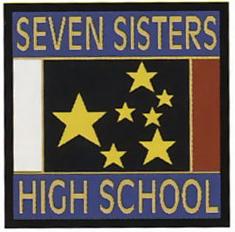You are using an out of date browser. It may not display this or other websites correctly.
You should upgrade or use an alternative browser.
You should upgrade or use an alternative browser.
Persona Community Thread |OT4| The Golden Number
- Thread starter Dantis
- Start date
Red The Hunter
Member
pffft.....hahaha
so is Tatsuya like Utena from Revolutionary Girl Utena now
Baikumorphs.jpg
I'm surprised Lisa isn't on top of it.
Final comment on P4A's story, but I've enjoyed how it's handled in the manga. I feel that a lot of the reason for P4A's narrative mishaps was because of how it was structured in the game.
Edit: Which is why I think I'd like to see an anime interpretation of the first game as well.
Edit: Which is why I think I'd like to see an anime interpretation of the first game as well.
SloaneRisette
Member
Guess i'll enjoy Yosuke month by myself then

After Rise month it can only go downhill.
SMT IV OST (from the official release) has been uploaded. The quality is a bit higher than other uploads.
https://www.youtube.com/user/nemesiswontdie/videos?sort=dd&view=0&shelf_id=1
Haven't given the soundtrack a listen for a while so revisiting these tracks is awesome.
https://www.youtube.com/user/nemesiswontdie/videos?sort=dd&view=0&shelf_id=1
Haven't given the soundtrack a listen for a while so revisiting these tracks is awesome.
And it follows the best story path ♪
Sure, but it's also about the fact that it doesn't only follow the perspective of a single character and their inner thoughts, but shows everything that's going on in general.
It's good to not just be restricted to a single character's story. Wonder if volume 3 released yesterday is the end.
Random pic:
Green Mamba
Member
So what car manufacturer logo will they steal for the high school logo in P5?
SloaneRisette
Member
So what car manufacturer logo will they steal for the high school logo in P5?
I'm going for Ford.
I won't write at length because I obviously just did a two-hour podcast (thanks for having me, guys! Super fun!), but knowing how Labrys' accent is distinct in Japanese, I actually really like how they handled her voice in the English version. While I mostly speak the standard dialect from Tokyo, Labrys speaks the one that's near and dear to my heart having lived around it, and that's Kansai-ben, which is what you hear down near Osaka. Kansai-ben is a really fun dialect because the expressions and whatnot are a lot more lively than your standard Japanese and it's just, for lack of a better way to articulate, a bit more colorful and down-to-earth than standard Japanese, which can be pretty cold and straightforward and times. The problem from a translation perspective is that the ways that dialects like Kansai-ben are different from standard Japanese is different from how, say, British or Australian English to American English; I won't get into technical stuff, but you're changing up aspects of Japanese grammar and how you formulate them that you don't see often in different dialects for Western languages. The end effect is that it sounds basically like a different accent to Japanese natives, but you have to be careful about which accent you pick if you go that route in English because different accents evoke different images and stereotypes in people who don't speak with them.
The way many translators approach this in the States if they actually try to preserve the accented nature of it all is to go with a boilerplate southern American accent. It's different enough from the neutral midwestern one that's considered the norm for broadcast television and whatnot. Not to offend anyone from the south if they're in this thread, but I don't think it's a stretch to say that southern accents tend to get a bad rap as belonging mostly to uneducated, ignorant, low-income people that society by and large doesn't take seriously. There are obviously plenty of smart and intelligent people from the south, but that image still persists and there are lots of stories of celebrities from southern states who worked really hard to shake off that accent to get rid of the stereotype. So going that route isn't worth it just because it might bring unwarranted labels to Labrys' character with English speaking audiences that weren't actually present in the original Japanese, regardless of the actual quality of her character. Furthermore, the typical colloquialisms that a lot of southerners use don't really mesh up in meaning with how people speak in Kansai-ben, which further complicates the issue. Labrys' character has to irrevocably change at least a little in keeping an accented aspect in English, but they key is finding a dialect and accent that evokes similar feelings in English as the original Japanese did for those players.
So in my personal opinion, a northeastern US accent (I think the Internet managed to determine it might have been very specifically a New Jersey one and not purely a Bostonian one?) is really as good as it might get for her character. There are stereotypes associated with it as there are every accent, but those stereotypes, the images they conjure up, and again, the manner of speech fit Labrys' Japanese dialog pretty naturally. As a result, you understand that Labrys is a pretty straightforward, blunt person who speaks her mind as people often are do with Kansai-ben, she has a unique sense of humor and worldview compared to the characters speaking more "conventional" English/Japanese, and that the way she articulates herself and her slang are very unusual and distinct compared to what everyone else is used to, which, again, is very much so a part of the original Japanese script.
Obviously in terms of the actual sound of her voice and the talent behind it, opinions are going to vary, but I just thought I'd chime in as a translator and try to point out some of the logic that I think went into developing her character that way for the English release. As a translator myself, it's definitely a very unusual take, but I really enjoyed the end results. The few occasions where I've had to write some bits for her have been really enjoyable as a result, since I've been made to research that side of American English.
(Edit: Never mind, I totally wrote at length. Well, too late to stop crossing that bridge!)
The way many translators approach this in the States if they actually try to preserve the accented nature of it all is to go with a boilerplate southern American accent. It's different enough from the neutral midwestern one that's considered the norm for broadcast television and whatnot. Not to offend anyone from the south if they're in this thread, but I don't think it's a stretch to say that southern accents tend to get a bad rap as belonging mostly to uneducated, ignorant, low-income people that society by and large doesn't take seriously. There are obviously plenty of smart and intelligent people from the south, but that image still persists and there are lots of stories of celebrities from southern states who worked really hard to shake off that accent to get rid of the stereotype. So going that route isn't worth it just because it might bring unwarranted labels to Labrys' character with English speaking audiences that weren't actually present in the original Japanese, regardless of the actual quality of her character. Furthermore, the typical colloquialisms that a lot of southerners use don't really mesh up in meaning with how people speak in Kansai-ben, which further complicates the issue. Labrys' character has to irrevocably change at least a little in keeping an accented aspect in English, but they key is finding a dialect and accent that evokes similar feelings in English as the original Japanese did for those players.
So in my personal opinion, a northeastern US accent (I think the Internet managed to determine it might have been very specifically a New Jersey one and not purely a Bostonian one?) is really as good as it might get for her character. There are stereotypes associated with it as there are every accent, but those stereotypes, the images they conjure up, and again, the manner of speech fit Labrys' Japanese dialog pretty naturally. As a result, you understand that Labrys is a pretty straightforward, blunt person who speaks her mind as people often are do with Kansai-ben, she has a unique sense of humor and worldview compared to the characters speaking more "conventional" English/Japanese, and that the way she articulates herself and her slang are very unusual and distinct compared to what everyone else is used to, which, again, is very much so a part of the original Japanese script.
Obviously in terms of the actual sound of her voice and the talent behind it, opinions are going to vary, but I just thought I'd chime in as a translator and try to point out some of the logic that I think went into developing her character that way for the English release. As a translator myself, it's definitely a very unusual take, but I really enjoyed the end results. The few occasions where I've had to write some bits for her have been really enjoyable as a result, since I've been made to research that side of American English.
(Edit: Never mind, I totally wrote at length. Well, too late to stop crossing that bridge!)
So what car manufacturer logo will they steal for the high school logo in P5?
They stole the logos before?
So what car manufacturer logo will they steal for the high school logo in P5?
Holy crap I've never noticed this and now it's blowing my mind.
They stole the logos before?
Well, Gekkokan looks like BMW
Yasogami is Mercedes.
So... if they stay with German... I'd say Volkswagon. Since it is also a circular design and easy to manipulate into a school logo.
So what car manufacturer logo will they steal for the high school logo in P5?
Ooooooooooooooooooooooooooooooooooooooooooh
I won't write at length because I obviously just did a two-hour podcast....
<four paragraphs wall o text>
(Edit: Never mind, I totally wrote at length. Well, too late to stop crossing that bridge!)
Yeah I was gonna say....
The part about Labrys being straightforward is pretty interesting, given the usual stereotypes of the New Jersey/Northeastern region that are are generally just that. It's a really good match.
Well, Gekkokan looks like BMW
Yasogami is Mercedes.
So... if they stay with German... I'd say Volkswagon.
Hmm...hmm...
Welp.
Guess i'll enjoy Yosuke month by myself then

I'll celebrate Yosuke month with you. I needed to stop lurking in this thread anyway
buddha0991
Member
Hmm...hmm...
Welp.
Look at these boring ass OG Gen logos:


compared to the new ones

I completely agree that Labrys' jersey accent was perfect. While I adore a good southern accent, It was refreshing to see something else fill in for kansai for a change.
Look at these boring ass OG Gen logos:

Okay what is even going on with this. St. Hermelin's mascot is what, a stoat? A weasel? And the Star of David is because?
buddha0991
Member
Okay what is even going on with this. St. Hermelin's mascot is what, a stoat? A weasel? And the Star of David is because?


I'm sure someone will know if I'm wrong, but didn't Shinji's buddy from Evangelion also have a Kansai dialect? He has a Brooklyn accent in the dub.
So, yeah.
Also, I thought buddha had pointed out Labby-chan's accent as Long Island, but I guess that's pretty damn close to Jersey.
So, yeah.
Also, I thought buddha had pointed out Labby-chan's accent as Long Island, but I guess that's pretty damn close to Jersey.
Okay what is even going on with this. St. Hermelin's mascot is what, a stoat? A weasel? And the Star of David is because?
It's a Star of David and a Chi Rho.

lol. The Seven Sisters HS logo feels like it's been ripped from some country's flag, but I don't know which one.
Persona 1 gets weirder every day.
CrazyTank940
Member
lol, whats that gif from anyways
hipsterpants
Member
No playlist? Step your game up SMTIV music uploader.
Seven Sisters logo represents the Pleiades star cluster, which is known as "The Seven Sisters".
The japanese name for Pliades is "Subaru", which...

The Car Logo theory holds weight, my friends.
ooooo I forgot about that lol
SatelliteOfLove
Member
Seven Sisters logo represents the Pleiades star cluster, which is known as "The Seven Sisters".
The japanese name for Pliades is "Subaru", which...

The Car Logo theory holds weight, my friends.
I was about to say.
Nah, seriously? In-game advertising. :O
Maybe not so seriously...
Advance ticket + theme song CD for the second movie.
Advance ticket + theme song CD for the second movie.
Hell of an advance ticket.
Well, depends on when they start selling it, if it isn't immediately.
Edit: If I'm seeing the Jika-Net website correctly, it seems people who want it need to pre-order it and the deadline for pre-orders is March 15.
I wouldn't want to give up that ticket. Sheesh, Aigis looks GOOD.Advance ticket + theme song CD for the second movie.
Advance ticket + theme song CD for the second movie.
I want this. Bad.
waits for Sophia's reaction
Lord Scrambles
Member
What is this Yosuke month stuff? And when is it Maries turn?
never ever
Advance ticket + theme song CD for the second movie.
This is going to be the best movie ever.
Why no, I'm not geeking out on twitter or anything...
The mythical 13th month, Pointlesstober, can be hers.What is this Yosuke month stuff? And when is it Maries turn?
Red The Hunter
Member
What is this Yosuke month stuff? And when is it Maries turn?
Tsunderember
Hell of an advance ticket.
Well, depends on when they start selling it, if it isn't immediately.
Edit: If I'm seeing the Jika-Net website correctly, it seems people who want it need to pre-order it and the deadline for pre-orders is March 15.
MMMMMMMMMMMMMM






